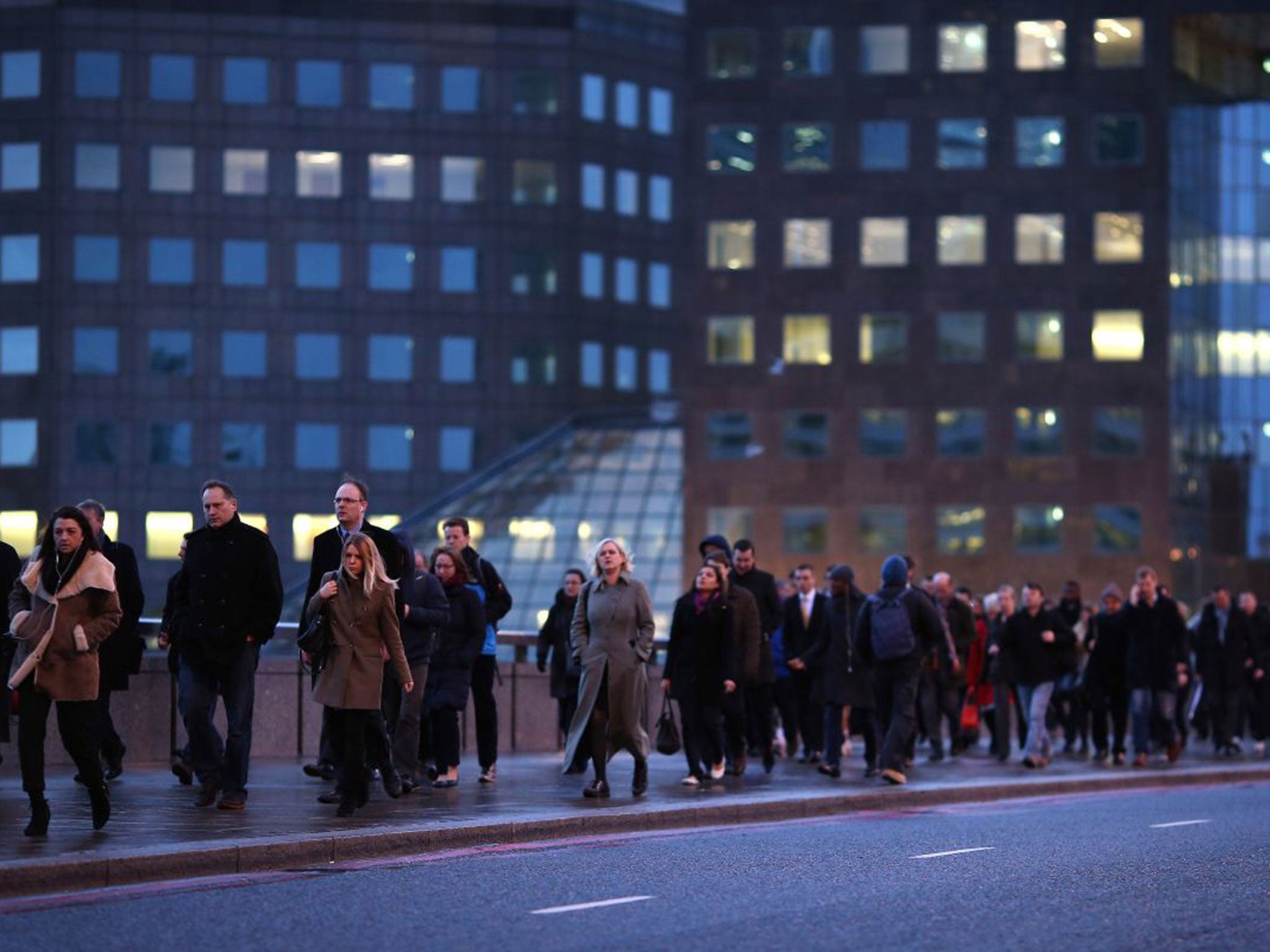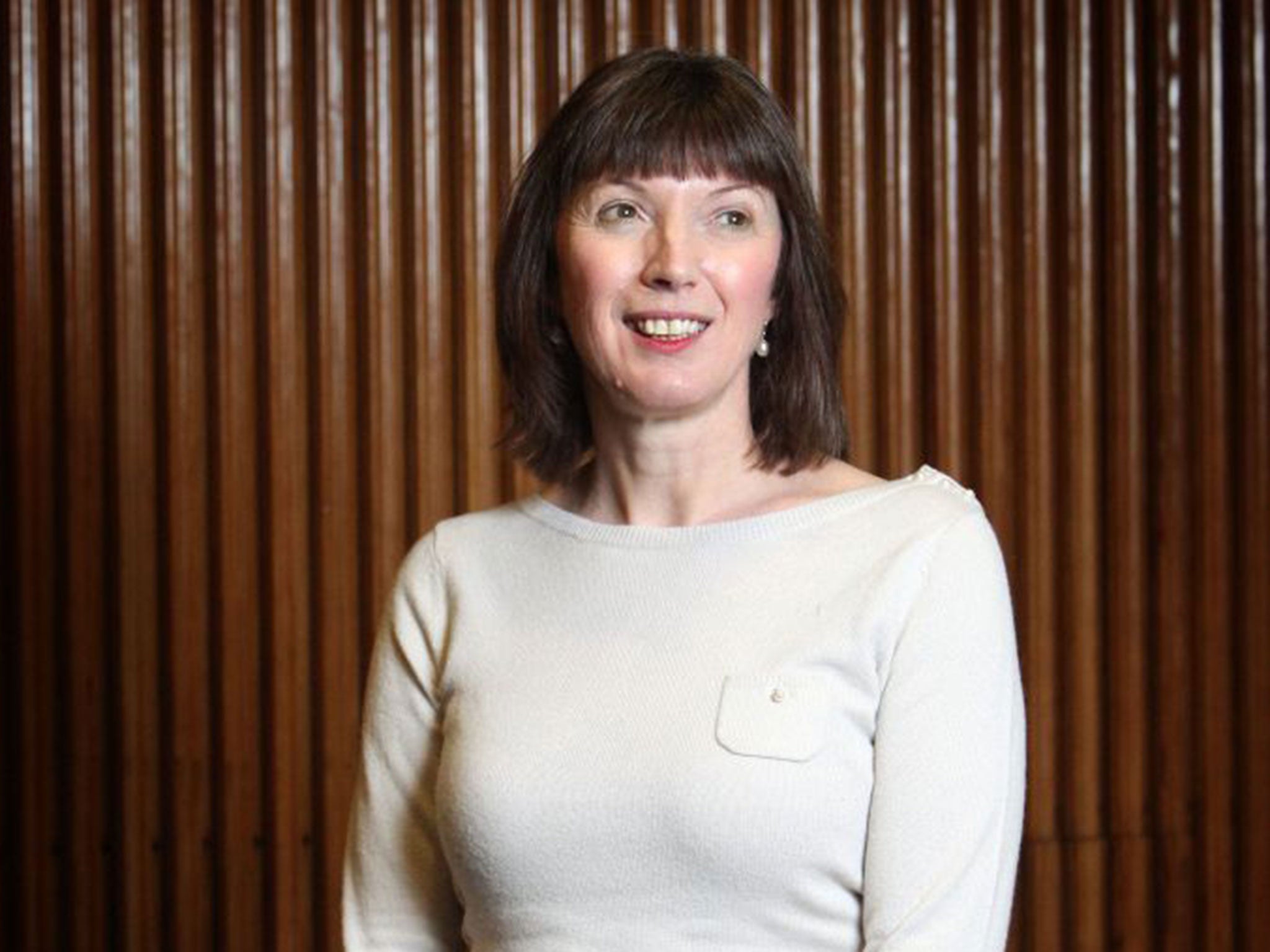Going to work is more stressful than ever, poll reveals
British workers find their jobs increasingly demanding and precarious

Your support helps us to tell the story
From reproductive rights to climate change to Big Tech, The Independent is on the ground when the story is developing. Whether it's investigating the financials of Elon Musk's pro-Trump PAC or producing our latest documentary, 'The A Word', which shines a light on the American women fighting for reproductive rights, we know how important it is to parse out the facts from the messaging.
At such a critical moment in US history, we need reporters on the ground. Your donation allows us to keep sending journalists to speak to both sides of the story.
The Independent is trusted by Americans across the entire political spectrum. And unlike many other quality news outlets, we choose not to lock Americans out of our reporting and analysis with paywalls. We believe quality journalism should be available to everyone, paid for by those who can afford it.
Your support makes all the difference.Britons find their jobs more stressful, precarious and demanding than ever before, according to an extensive poll of experiences of the workplace published exclusively by The Independent on Sunday.
Two thirds of employed people say that the amount of work they are expected to do has grown over the past few years, and more than a third are expected to do unpaid overtime, YouGov polling for the TUC found.
One in five says they have seen at least one person sacked or made redundant without good reason.
The findings come against a backdrop of increasing workplace illness and injury rates. Figures released last month by the Health and Safety Executive show almost half a million people suffered workplace-related stress, depression or anxiety in the last financial year. Around half were new cases.
Only a third of us report looking forward to going to work, the rest are either ambivalent or dread it. And despite the coalition's attempts to make the workplace more family-friendly through childcare and parental leave measures, a quarter of people still feel there is not enough flexibility in their jobs to balance work and the rest of their life.
TUC General Secretary Frances O'Grady said: "What job we do is a big part of our identity. Yet this poll reveals that many of us work in unfair workplaces that don't get the best out of their staff. Employers and politicians talk up the flexible labour market, but for too many it means being treated as only slightly more important than what is in the stationery cupboard."
The study also reveals the scale of unreliable or zero-hours contracts. One in five people say that either they or someone else at their workplace has experienced insecure or irregular work that meant they did not know how much work or pay they would get from week to week.

Since the recession, the instability of zero-hours contracts has been a growing problem. Employers in Britain are now using around 1.4 million employee contracts, according to a snapshot survey conducted by the Office for National Statistics earlier this year.
The Shadow Business Secretary, Chuka Umunna, said: "Under the Tory-led government we've seen a rising tide of insecurity, as ministers have attacked and removed workplace rights and protections, and life at work has become increasingly insecure for so many people ....
"Alongside the need for more high-skilled, better-paid jobs, the workplace must be a place which affords dignity, respect and fairness for all. That's why Labour would abolish zero-hours contracts where they exploit people, and where the Government has introduced tribunal fees for employees suffering discrimination or poor treatment, we will reform the ... tribunal system to ensure affordability is never a barrier to justice."
The latest polling shows a workforce riddled with uncertainty. Just under a quarter – more than six million workers – worry that they might lose their job in the next year, and a third are worried that their job may offer worse conditions, such as fewer hours or less pay, in that time.
Progressing in a job is also a distant hope for many. Two out of five people in work do not agree that they have a good chance to progress. And more than 8.5 million workers say they do not have regular opportunities to improve their skills at work. Almost half of those in employment believe their job does not make full use of their skills and abilities.
The research also shows the public's disaffection with executive pay, which is significantly higher in Britain when compared with workers' wages than in many other Western countries. More than half – 57 per cent – said the gap between those at the top of their organisation and the rest is too great. Just one in five say their pay has kept up with the cost of living over the past few years.
A Department for Business, Innovation & Skills spokeswoman said: "There are now more people in work than ever before, meaning more people are able to support their families with the security of a regular wage. Last month alone we implemented the first above-inflation rise in the National Minimum Wage since 2007."
Join our commenting forum
Join thought-provoking conversations, follow other Independent readers and see their replies
Comments